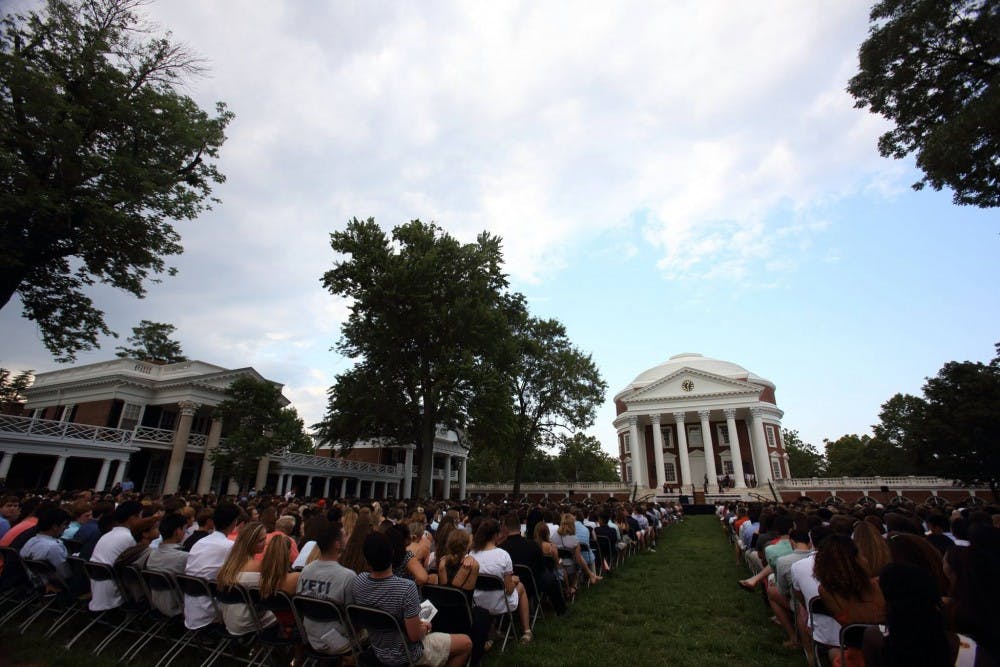The University recently decided to require all first-year students to complete an implicit bias module in order to “build a more inclusive community” and to “make U.Va. a place where everyone feels welcome and people are treated equitably.” However, the module which the University uses — the Implicit Association Test, or IAT — has been proven to be inconclusive in describing bias. Researchers, including the University’s own Brian Nosek, have found that exploring implicit bias as a way to address prejudice is ineffective. Given the scientifically proven inconsistencies of the IAT and its failure to effect positive behavioral change, the University should withdraw its decision to force first-years to complete the module.
There are inherent flaws to the design of the IAT which prevent it from accurately detecting racial and ethnic bias, including the standard of neutrality of the test. According to a study published by the Journal of Applied Psychology, “the zero point on the IAT fails to map onto behavioral racial neutrality and ... Researchers’ tendency to treat the zero point as valid likely leads to significant overestimation of the degree of implicit bias in populations.” Therefore, those who are told by the IAT that they are racially and ethnically biased are very likely to hold no such prejudices.
Additionally, the same study states that the “[IAT] is commonly interpreted as showing high levels of implicit prejudice among Americans. These interpretations have fueled calls for changes in organizational and legal practices, but such applications are problematic because the IAT is scored on an arbitrary psychological metric.” While arbitrary metrics such as those used in the IAT are common in psychological studies because they allow researchers to better explore hypothetical situations, they are not useful in providing data from which scholars can draw definitive conclusions. This is largely because it is impossible to interpret the degree to which differing results based on such metrics vary. In the context of the IAT, it would be impossible to know how much more biased one person is compared to another based on differing test results, effectively rendering the results useless.
Not only are there inherent flaws to the test which make it ineffective at describing bias, but addressing prejudice by focusing resources and discussion on a person’s alleged implicit bias does not even have a significant implications for explicit behaviors. The creators of the IAT, including Brian Nosek, Executive Director of the Center for Open Science at the University, concede that they “found little evidence that changes in implicit bias mediate changes in explicit bias or behavior.” Therefore, even if the test could consistently measure an individual’s implicit bias, such discoveries are useless in changing biased behavior because research has failed to find definitive links between implicit biases and those biases manifesting themselves through expressed behaviors.
While tests such as the IAT fail to address prejudice, there are other methods that organically break down biases. Heather McGhee, President of Demos, an ideologically liberal public policy organization which focuses on addressing inequality, offered advice to a white man from North Carolina who called into C-SPAN’s Washington Journal asking her how he could overcome his own racial prejudices. She recommended that he “get to know black families, to not form opinions about people of color from the evening news, to join a black church (if he’s religious), to read the rich history of the African American community and to start conversations within his own community about race.”
While the University is using the IAT to start conversations about bias, it is not a wise allocation of University time and resources to focus so much energy and attention to the ineffective and inaccurate test. Instead, positive change comes about through organic interactions such as those McGhee mentioned. The University, in order to foster the interactions which lead to productive conversations about bias, should continue initiatives such as the “Excellence Through Diversity Distinguished Learning Series.” Such initiatives allow students to gain exposure to experts and scholars from an array of fields including politics, academia and law while also effectively addressing the need for countering bias through mutual understanding.
Tom Ferguson is an Opinion columnist for The Cavalier Daily. He can be reached at opinion@cavaleirdaily.com.







